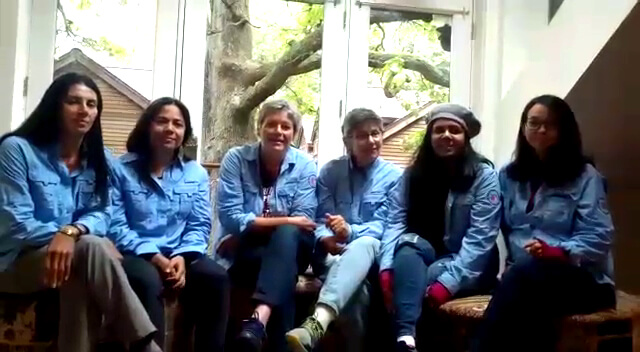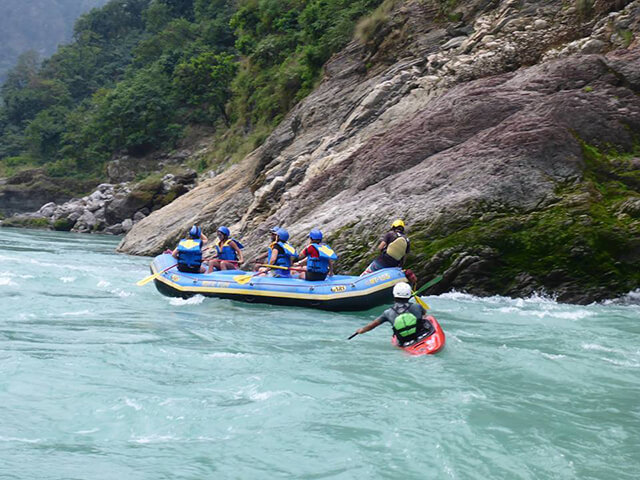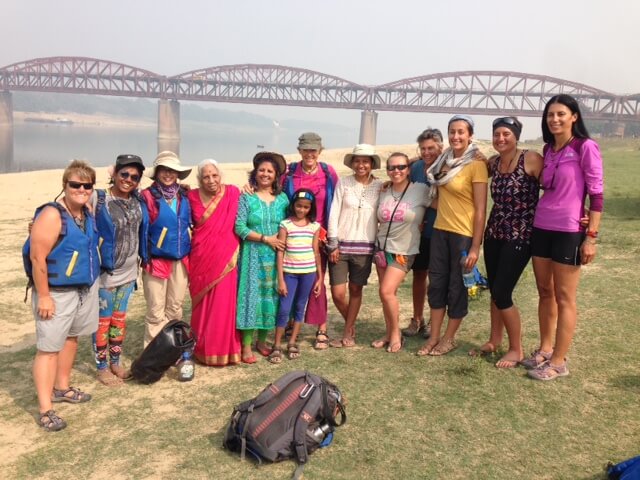All women international team on an expedition to Mississippi for 'Access Water'
Renowned polar explorers and educators Liv Arnesen and Ann Bancroft are leading a team of six women, from six continents, for a series of unique international expeditions, 'Access Water' in different countries to inspire 50 million youth for a better world. They mix 'Expedition' with 'Education' to find a solution to overcome different challenges youth face.
They mainly emphasize on the fresh water crisis, essential role of education in making sustainable changes, empowerment of girls and women to achieve their dreams, cross-cultural communication and understanding; and the ability of each person to make a difference to the world.
After their expedition on the river Ganges in India and Yangtze in China, this year they are on their incredible expedition on Mississippi river in USA.

Here is all we had to know about their 'Access Water' Expedition.
Can you provide a brief description of the Access Water project?
Ann Bancroft: Access water is a multi-year international series of expeditions that will take us to each country around the globe and we have this international team representing the seven continents (Or six continents I should say) and we mix expeditions with education trying to inspire particularly young people to get engaged in the challenges before us and helping to collaborate and find solutions for better world.
Ann Bancroft: You (Liv) wanna add?
Liv Arnesen: Well, Our role is to reach about 15 million young people and as Ann said, the mingle is to communicate across the countries and continents. So, everybody I can understand that we have to cooperate to make the world a better place to live. As our team is from different continents, different ages, different cultures, different religions even we have to cooperate.So that is the symbolic part of the project.
What have you earlier accomplished?
Krushnaa Patil: Other than this team consisting of women who are very accomplished and this expedition series started by Liv and Ann because they went to the poles. We started with Ganga (Ganges) in 2015 and the whole team were on the river for two months and we worked with TERI to bring the education to Indian schools and spread Over 6000 schools in India, in 2015. Its a five year programme. It was our first expedition where you know the team really came together and did something and then of course we went to China last year in 2016. Again making educational partnerships and being on the Yangtze which comes into India as the Brahmaputra. And made partnerships with education ministry in China.


Krushnaa Patil: You (Jiaojiao) can speak a little bit for that.
Jiaojiao Hu: We have partnership in China with different organizations like NGO and also the UN, IHP, also the Ministry of Environment Protection and Education Centre in China. Our team also experienced the water culture there, and also experienced the White Water in Yangtze. It was a very amazing trip and we shared ideas and knowledge with the children as we visited a lot of schools in the countryside, cities.
Ann Bancroft: May be you (Jiaojiao) can discuss about the importance of water culture.
Jiaojiao Hu: I come from Yunnan Province, from the south of China. We have very strong water culture there. Because my older generations, they lived on underground water. So we have to dig a lot of wells from the ancient time. The old people they respected water a lot. So they did not allow us to speak, act or any behaviors in front of the wells. Because they ask us to respect water and the wells. Because that's the most important resource we have. So, We really enjoyed our water culture there. The problem is when people moved to the modern cities and the modern beauties they did not feel that the access of water is very difficult. So, may be the young generations, they do not respect the water and the old did. It's the reason why we want to bring the Access Water team to my home town and also to Beijing and other big cities to educate the young people in our water culture and the water challenge. To tell them, the water is very important to us from old time and even now.
Ann Bancroft: Thank you (Jiaojiao).
Tell us something about the upcoming Access Water expedition on Mississippi river?
Olfat Haider: We are planning next September to go two months canoeing on the Mississippi river.
Ana Maria Atienza: Yahh, we started the process now this week September and start to work with a school, two months. In the next year we will end this trip.
Ann Bancroft: Much like Ganga and Yangtze we will mix with schools along the way, scouting programs, industries ,farmers, government. So we will learn more about the issues along the Mississippi as well. So it sort of rolling out from there.
Krushnaa Patil: In this week itself we spent a day with the farmers and the government. Twenty years ago the Mississippi was a drainage system. It is one of the rivers that has been abused in this region. But it changed in the past twenty years. Because citizens took initiative to take responsibility for their effect on the river from sewage treatment plants to the government giving water certificates to farmers. So that it is in check how much chemicals is going into the river from the farmlands. After being on the Ganga for two months and just seeing the numbers of sewage that comes into the Ganga, a holy river and see how we as people can make a difference if we really want to and that is the whole point of our expedition. It's for Intercontinental exchange of learnings that we can use from each other and each other's river systems. In china we learnt that going back to the old traditions, and using water and giving back the respect that our elders did is something that we have slowly lost in the progressive modern world. And if we can get back to that together moving forward. So I think, having done in India and China, Mississippi is going to be something that probably we can learn from. But also understand that the guys who are ahead of us like America, in that sense, they still also have a very long way to go in becoming perfectly really respectable to the water systems.
Photo Courtesy: Yourexpedition.com






